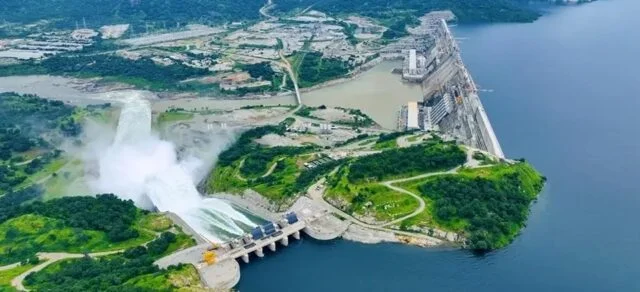Ethiopia is ready to launch its Grand Ethiopian Renaissance Dam (GERD) on September 9, 2025. The huge project on the Blue Nile could change Ethiopia’s future but has caused arguments with Egypt and Sudan.
A Game-Changing Dam
The GERD, built near Sudan’s border, will produce over 5,000 megawatts of electricity. That’s double Ethiopia’s current power. Started in 2011, the $5 billion dam aims to fix Ethiopia’s energy shortages and let it sell power to nearby countries. It could make Ethiopia a top energy provider in East Africa.
Worries Downstream
Egypt and Sudan, which depend on the Nile River for water, are concerned. Egypt gets over 90% of its water from the Nile and says Ethiopia is making decisions without agreement.
Abbas Sharaky, a water expert at Cairo University, says Egypt uses water from its High Aswan Dam to make up for shortages, but this won’t work forever.
Sudan says the dam has reduced flooding in some seasons. It worries that sudden water releases could cause floods or long dry spells.
But Ethiopia’s Water Minister, Habtamu Itefa, says the dam helps by sending three to four times more water downstream during dry months.
Working Together
Ethiopia says it designed the GERD to avoid harming Egypt or Sudan. Yacob Arsano, a water politics expert at Addis Ababa University, says Ethiopia keeps water flowing downstream. He wants all Nile countries to talk calmly and share the river fairly.
A group was formed to discuss water sharing, but Egypt wants a legal deal, and tensions remain. Itefa calls for teamwork on projects that help all countries, like Uganda, Tanzania, and Rwanda. Still, many African leaders may skip the dam’s opening because of the dispute.
Hope for Ethiopia
Ethiopians see the GERD as a step toward growth. Amakelech Debalke Gebre-Giorgis, a mom of two in Addis Ababa, is excited. “More electricity means a better life for us,” she said, sharing the hope of many citizens.
What’s Next?
As Ethiopia celebrates the GERD’s launch, it faces both promise and challenges. The dam could transform East Africa’s energy, but success depends on working with Egypt and Sudan to share the Nile fairly.




















